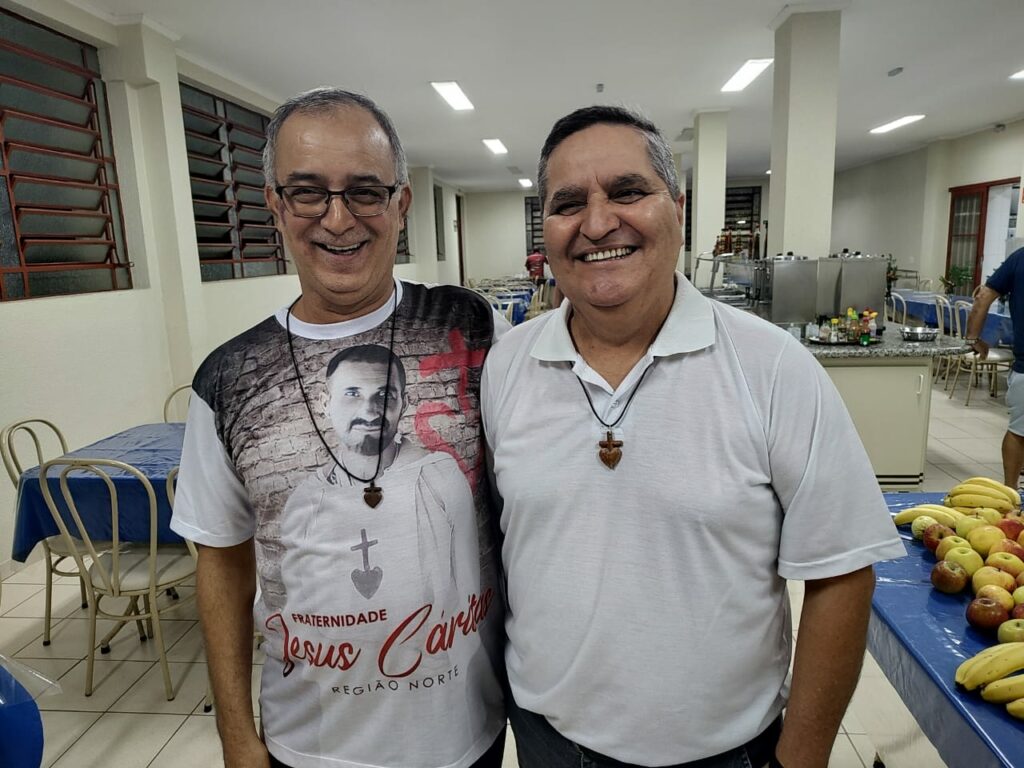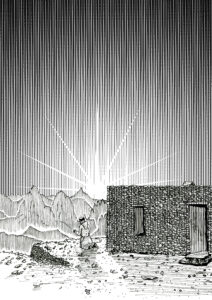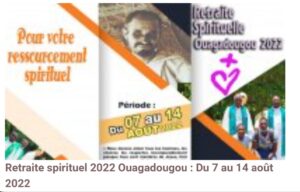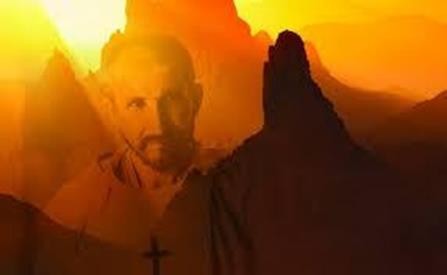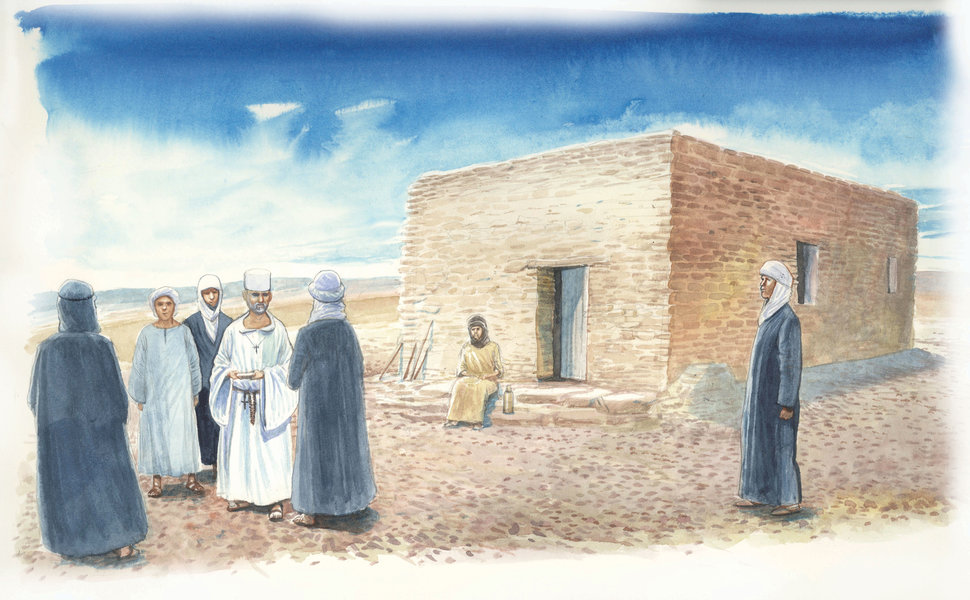The annual Retreat of the Priestly Fraternity of Brazil took place from January 23rd to 30th in the city of Jundiaí – SP. On the 29th, the elective Assembly was held, which takes place every six years, according to the Directory and Statute, as Father Carlos Roberto dos Santos’ time as national leader ended.
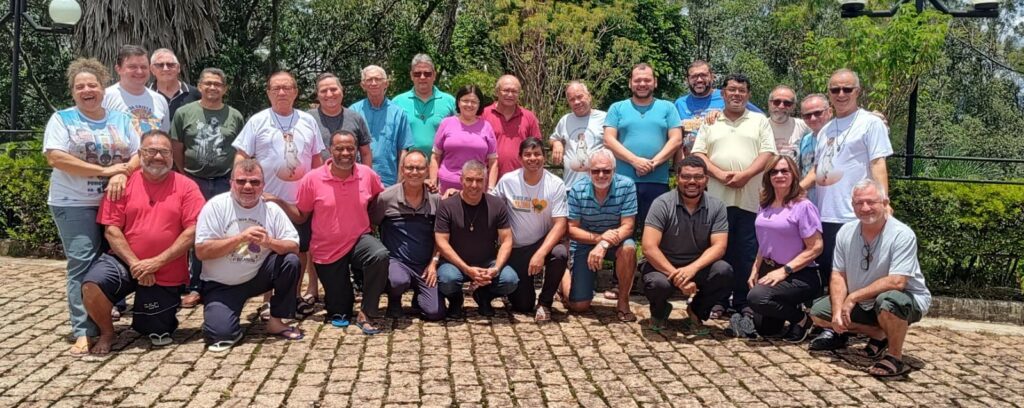 This year the retreat was a little different, first because, atypically, only 27 participated people.
This year the retreat was a little different, first because, atypically, only 27 participated people.
Secondly, because Father Antônio Reges Brasil, who would be the preacher, cannot do so due to medical instructions. As the news arrived in October, there was no time to invite another advisor to the retreat, and we organized a team and priests from the Fraternity, coordinated by Father Carlos Roberto dos Santos, to preach the retreat. We chose the themes for each meditation based on the decisions of the first part of the Synod of Synodality, as follows:
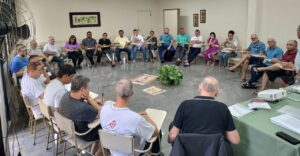 The introduction to the Retreat and the first meditation was given by Father Carlos and had as its theme: Charles de Foucauld, an unfinished brother: from the journey of Charles de Foucauld and his spiritual heritage motivated the experience of all the other themes, taking into account current challenges in the ecclesiastical journey.
The introduction to the Retreat and the first meditation was given by Father Carlos and had as its theme: Charles de Foucauld, an unfinished brother: from the journey of Charles de Foucauld and his spiritual heritage motivated the experience of all the other themes, taking into account current challenges in the ecclesiastical journey.
In the 2nd meditation, Dom Eugênio Rixen shared about Synodality as a novelty, presenting several controversial aspects of the Synod Charter, helping us to meditate on this reality; Father Willians Roque de Brito gave the 3rd meditation, helping us update an important theme of our spirituality: “Apostolate of Kindness: A synodal Church on mission”, valuing the contribution of all the baptized, in the variety of their vocations. In the 4th meditation Dom Eugênio Rixen worked on the theme: “Weaving bonds, building fraternity and communion" from the universal fraternity, proposed in our Fraternity.
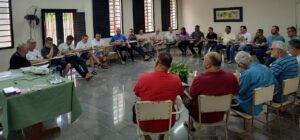 The 5th meditation, done by Little Brother Lindolfo Euqueres, helped us meditate on a truth very dear to all of us: “the poor are the protagonists of the church’s journey”. He gave an excellent testimony of the insertion of his little brothers in the world, among the poor. In the 6th meditation, Father Gildo Nogueira Gomes, from Fratelli Tutti, helped us to review the
The 5th meditation, done by Little Brother Lindolfo Euqueres, helped us meditate on a truth very dear to all of us: “the poor are the protagonists of the church’s journey”. He gave an excellent testimony of the insertion of his little brothers in the world, among the poor. In the 6th meditation, Father Gildo Nogueira Gomes, from Fratelli Tutti, helped us to review the
Prophetism of the Church, faced with an individualism that turns against itself, a populism that divides the people, creating hatred against their brothers, and a globalization that homogenizes the poor and standardizes the exploitation and decrease in the quality of life of human beings.
In the 7th meditation, Father Willians Roque de Brito helped us face the “mission in the digital environment”, often false, but also a new areopagus where we can witness the spirituality of Saint Charles de Foucauld and help in the journey of the Church in our time . The big question: how can we contribute in this digital environment, safely both to our human and ministerial existence, and to help others grow? Training and monitoring of digital missionaries and the creation of networks are necessary.
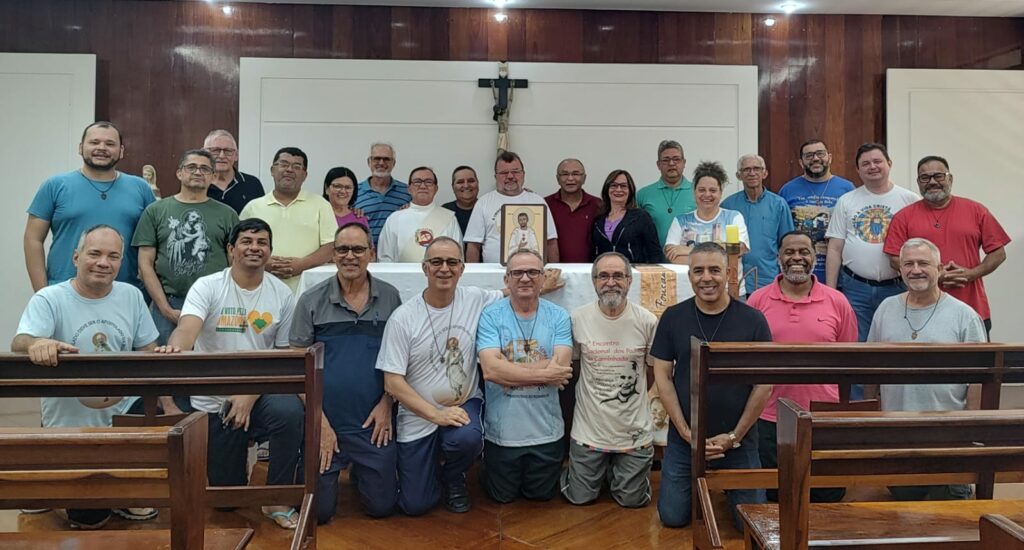 In the 8th meditation Father Carlos Roberto dos Santos helped us to meditate on the issue of “Anxiety, depression and suicide in the lives of the people, especially the clergy”. Based on concrete data on the high rate of suicide among clergy in Brazil; the collaboration of psychology and neuroscience, presented as a healing principle, for the body and soul, friendship with Jesus and with our brothers lived from the apostolate of kindness, in the gratuitousness of life. True friendship allows brothers to talk, without fear, about their joys and hopes.
In the 8th meditation Father Carlos Roberto dos Santos helped us to meditate on the issue of “Anxiety, depression and suicide in the lives of the people, especially the clergy”. Based on concrete data on the high rate of suicide among clergy in Brazil; the collaboration of psychology and neuroscience, presented as a healing principle, for the body and soul, friendship with Jesus and with our brothers lived from the apostolate of kindness, in the gratuitousness of life. True friendship allows brothers to talk, without fear, about their joys and hopes.
It was planned, one morning until lunch, a conversation with Father Julio Lancelloti.
We looked forward to hearing him share his testimony of life, but he couldn’t come. At the last minute, his lawyers met with him to prepare his defense in the face of the constant persecution and accusations he has suffered due to his work with his homeless brothers and sisters. But the intention of the seed was worth it.
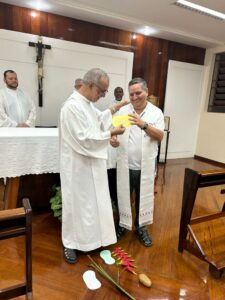 On the 29th, the elective Assembly of the Jesus + Caritas Priestly Fraternity was established in Brazil. Father Carlos, national leader, presented and read the guidelines and procedures for the election provided for in the Directory and Statute of the Fraternity. He presented these same guidelines, during the year 2023, at meetings of the various fraternities in the six regions of Brazil. In the first round of the election, each region nominated three names of brothers from all over Brazil to assume the position of National Responsible in the years 2024-2029. The three most voted were: Father José de Anchieta Moura Lima, from the Archdiocese of Juiz de Fora/MG, Dom Edson Tasqueto Damian, bishop emeritus of the Diocese of São Gabriel da Cachoeira/AM and Father Willians Roque de Brito, from the Diocese of Marilia/SP. Father José de Anchieta Moura Lima, from the Archdiocese of Juiz de Fora, state of Minas Gerais, was elected with unanimous votes. He was consulted by Father Carlos Roberto dos Santos, and after acceptance, as there had already been verbal approval from his bishop, he took immediate possession of the position, assuming the coordination of the Jesus + Caritas Priestly Fraternity as the National Responsible for the period from 2024 to 2029.
On the 29th, the elective Assembly of the Jesus + Caritas Priestly Fraternity was established in Brazil. Father Carlos, national leader, presented and read the guidelines and procedures for the election provided for in the Directory and Statute of the Fraternity. He presented these same guidelines, during the year 2023, at meetings of the various fraternities in the six regions of Brazil. In the first round of the election, each region nominated three names of brothers from all over Brazil to assume the position of National Responsible in the years 2024-2029. The three most voted were: Father José de Anchieta Moura Lima, from the Archdiocese of Juiz de Fora/MG, Dom Edson Tasqueto Damian, bishop emeritus of the Diocese of São Gabriel da Cachoeira/AM and Father Willians Roque de Brito, from the Diocese of Marilia/SP. Father José de Anchieta Moura Lima, from the Archdiocese of Juiz de Fora, state of Minas Gerais, was elected with unanimous votes. He was consulted by Father Carlos Roberto dos Santos, and after acceptance, as there had already been verbal approval from his bishop, he took immediate possession of the position, assuming the coordination of the Jesus + Caritas Priestly Fraternity as the National Responsible for the period from 2024 to 2029.
Goiás, 21 February 2024
Read in PDF: Annual retrait and Assembly. Fraternity of Brazil. February 2024. Carlos Roberto dos SANTOS eng



